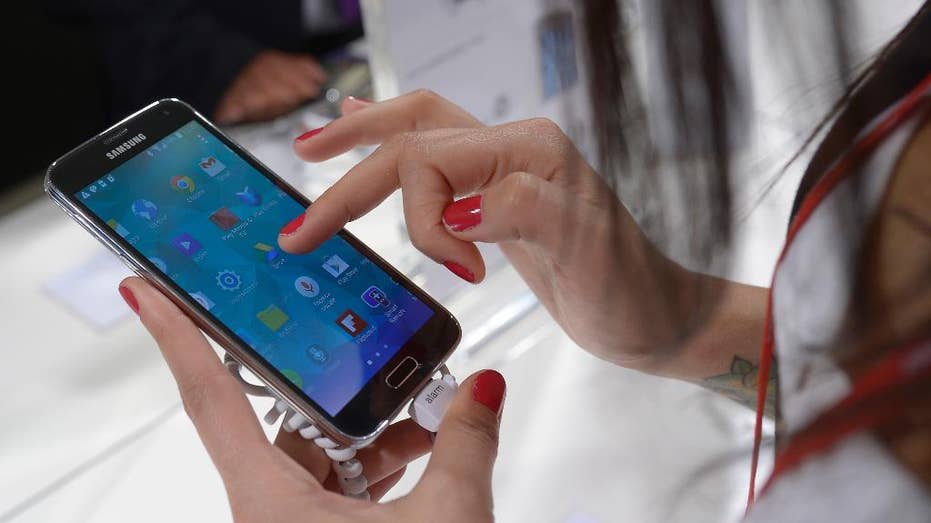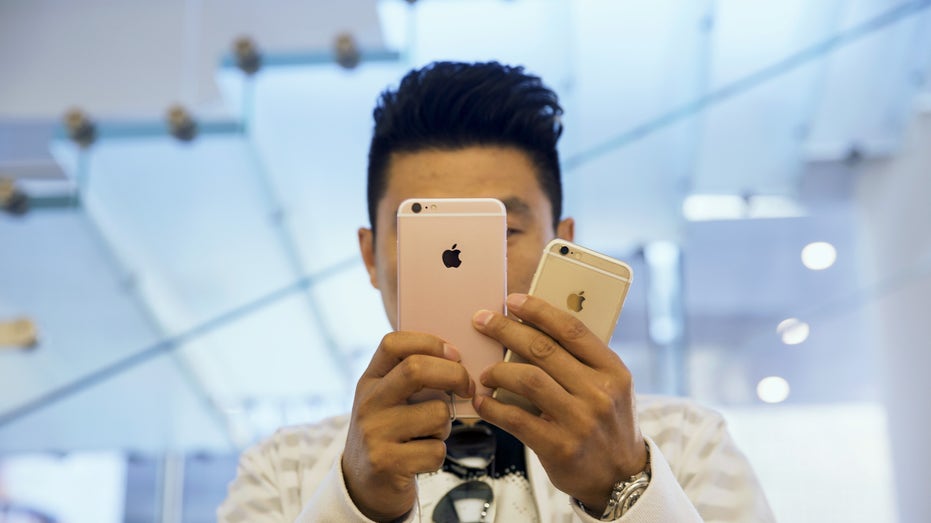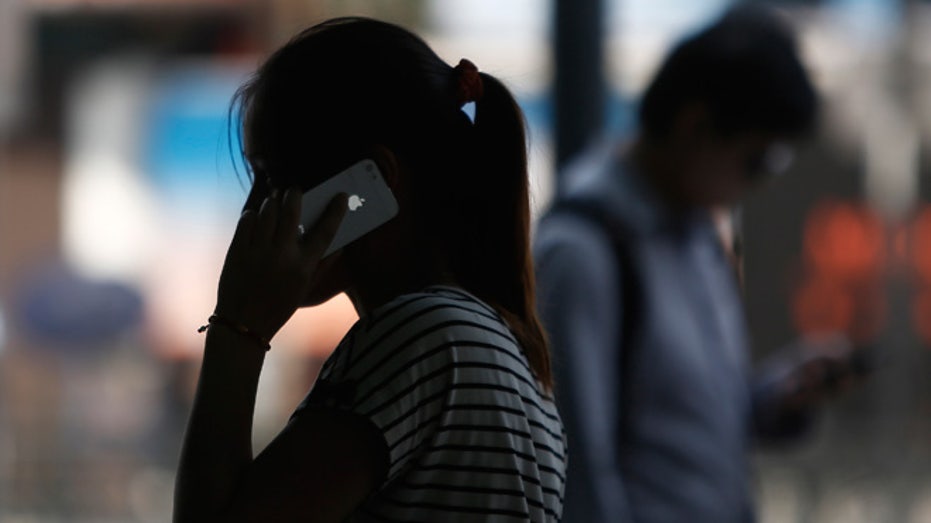Older cell phones to become obsolete as 3G networks disappear
Here's why millions may need a phone upgrade soon
Third-generation, or 3G, networks are coming to an end, which means 47.3 million mobile-phone users in the U.S. could be without service soon.
As the country moves toward 5G wireless technology, approximately 17 percent of the U.S. population could be forced to upgrade their phones and tablets if they still want cell data, according to a Jan. 30 report by Richard Howard, content specialist at mobile virtual network operator Ting.
The 3G networks, which enabled very basic mobile games and apps available on smartphones, has been around since 2001. Then came 4G in 2010, which enabled more advanced apps and high-quality video streaming. Now, 5G service is becoming more mainstream, and network carriers are planning to help customers transition away from 3G products, which is a process commonly referred to as a "sunset."

The Samsung Galaxy S5 is displayed at the Mobile World Congress in Barcelona, Spain, Tuesday, Feb. 25, 2014. (AP Photo/Manu Fernandez)
"For several years now, we've publicly stated that our 3G [code-division multiple access] network is being decommissioned," Verizon Global Network & Technology Communications spokesperson Karen Shultz told FOX Business.
Verizon will continue to support "the remaining" 3G devices on its network through the end of 2020, Schultz said, adding that "virtually all Verizon data traffic runs on" its 4G LTE network.
VERIZON, AT&T, T-MOBILE TO BE FINED BY FCC: REPORT
"We have very few customers who are still accessing our 3G Network," Schultz said. "We have worked for the past few years to help those with 3G devices transfer to devices capable of accessing the 4G LTE network. To facilitate the smooth migration of the remaining 3G devices in the market onto 4G LTE or 5G capable products and services, we are no longer allowing devices that are not 4G LTE capable to be activated on our network."

A man takes pictures as Apple iPhone 6s and 6s Plus go on sale at an Apple Store in Beijing, China September 25, 2015. REUTERS/Damir Sagolj - RTX1SCZI
AT&T is operating under a similar plan to move customers toward newer products, and its 3G network service is expected to be shut down by February 2022. spokesperson Megan Daly said the national 3G shutdown is "an industry-wide matter," and referred FOX Business to CTIA, a trade association representing the wireless industry as a whole, for more information.
WHEN WILL THE US HAVE 5G TECHNOLOGY?
"This is nothing new," CTIA said. "The wireless industry has transitioned customers from old to new generations before and will do so again. Consumers shouldn’t fall for these sorts of scare tactics and any who have question[s] should call their carrier[s] to discuss options."
AT-Mobile spokesperson told FOX Business it has not released any plans to transition into a 3G sunset, but according to a June announcement from transportation safety nonprofit PrePass, T-Mobile and Sprint are expected to begin the process in 2020 or in 2021.

Girl holding iPhone / iStock
But even people who use 4G and 5G-capable smartphones could be affected by the collective 3G shutdown if they own other smart devices that rely on 3G technology, Ting Content Specialist Richard Howard said in his report.
CLICK HERE TO GET FOX BUSINESS ON THE GO
"Many [Internet of Things] devices and their controllers use 3G modems, as well as associated technologies like GPRS. In short, you could be in for an unwelcome surprise when they shut down support in your area and you wake up the next day to find your older smartwatch or refrigerator has suddenly become quite dumb," Howard wrote.
CLICK HERE TO READ MORE ON FOX BUSINESS
Your best bet as a 3G mobile-device user, Howard added, is to purchase a "4G/LTE phone that supports VoLTE," or Voice over Long-Term Evolution. He says that "[within] the next couple years, all voice calls will be made over LTE networks."




















